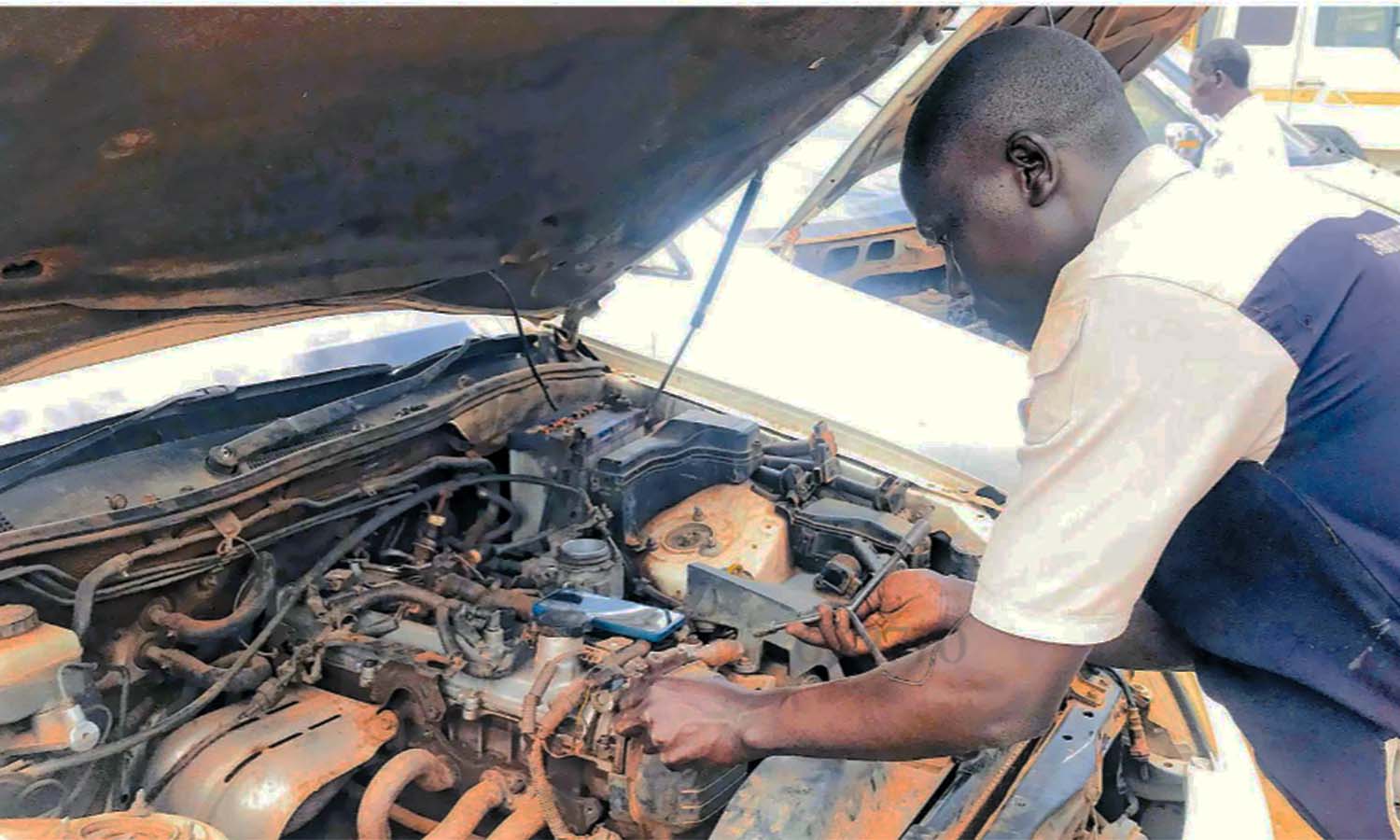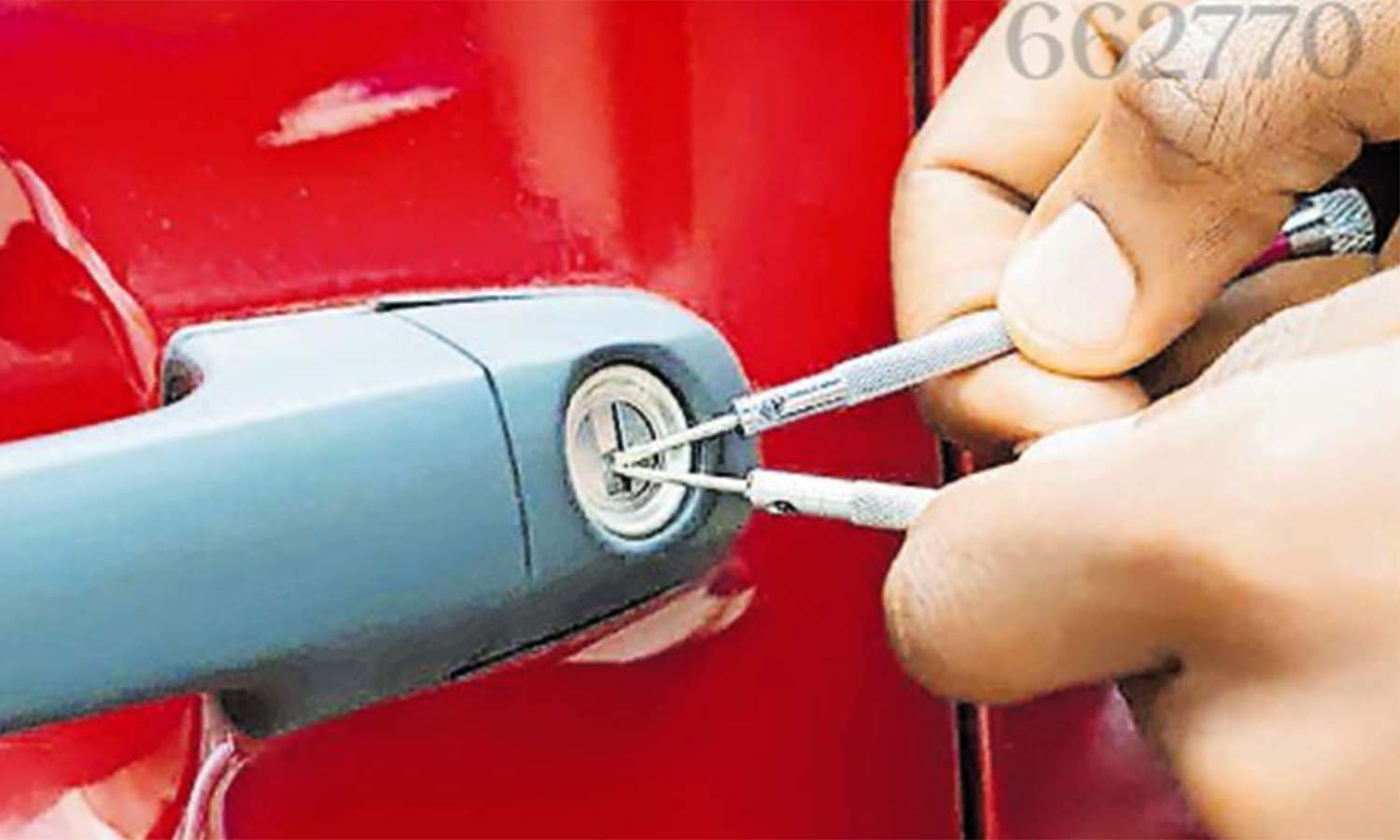
Deborah Kigongo claims that the court file has disappeared, so the documents filed cannot be signed and executed. Photo / Michael Kakumirizi
Deborah Kigongo looks surprisingly strong, unscathed by an 11-year battle through which she has pushed all stops to get justice.
She glows on, ready to do whatever it takes to get justice for an omission in which her company’s consignment was irregularly auctioned at Mombasa port.
It’s been 11 years of pursuing justice in the Kenyan judicial system, but even when she has secured victory - not once but twice - it has always been a case of so near, yet so far.
In 2012, Kigongo, the proprietor of Kaaya Enterprises, filed a case in Kenya, challenging the irregular auction of her consignment.
For seven years, she waited patiently, and in 2019, she got her first victory, but dissatisfied with the ruling, on May 29, 2019, Kenya Revenue Authority (KRA) appealed the judgment, in which Kigongo had been awarded $40,000 (Shs149m) as compensation for the value of consignment that was auctioned as abandoned cargo at Mombasa port.
For five years, Kigongo waited again, but on April 26, 2024, the Kenya Court of Appeal in Malindi, reconfirmed that the KRA commissioner for customs and excise had unlawfully auctioned Kaaya Enterprises’ consignments that comprised road construction equipment.
KRA had appealed the judgment, in which Justice P J Otieno, on May 29, 2019, awarded Kaaya Enterprises the value of the auctioned consignment, faulting KRA for failing to issue valid and proper notices as prescribed by Kenyan laws, to warn Kaaya that it needed to clear its goods within the prescribed time by the laws of Kenya.
The omission culminated in the sale of Kaaya’s goods without notice, which not only deprived the company of its property but subjected it to un-procedural conduct.
The Court of Appeal also ruled that the amount of money paid by Unicom Limited for the goods in question, which was far below the actual cost of the consignment, was a serious discrepancy for which KRA was liable.
“After carefully considering this appeal, we have concluded that the learned judge’s decision is for upholding, being satisfied that it was a sound judgment. Accordingly, we find no merit in this appeal and dismiss it with costs,” a judgment delivered in Mombasa on April 26, 2024, reads in part.
However, five months after the appeal was dismissed, KRA and Kenya Ports Authority (KPA) have remained silent and adamant regarding expediting the court’s directives. But not the type that gives up easily, Kigongo, in an interview last week said she will not give in to “another classic case of justice delayed that KRA and KPA have used for the last 11 years”.
“I think they want to frustrate me into giving up,” she says, noting that “lately KPA lawyers have stopped communicating with our legal team [and] no longer pick our calls”.
Therefore, Kigongo has now resorted to engaging government to intervene at government-to-government level.
On this front, she has engaged the Ministry of Justice, and in an interview last week Justice and Constitutional Affairs Minister Norbert Mao, confirmed receipt of a letter from Kigongo seeking help to expedite justice in a case, in which an East African Community member state auctioned goods without following the due process.
In a letter, Kigongo says that after courts in Kenya decided the matter in her favour, “my lawyer in Mombasa filed documents to execute the orders of court but the information I have from my legal team indicates that the court file has since disappeared, thus documents filed cannot be signed and executed. The reason for this letter is to call upon your office to intervene.”
Mao has since held a meeting with Kigongo and reached out to Kenyan authorities to see how the judgment can be enforced.
“What is happening is the use of bureaucracy to derail justice by the Kenyan authorities. They have been found to have breached the law and liable to pay damages. They have to compensate [Kigongo] but don’t want to do so because they think [she] can do nothing.”
“This is an example of impunity on the part of KRA and KPA. Her lawyers are now being threatened. This undermines the spirit of regional integration, but we are confident we will be able to resolve the matter,” he adds.
Mao also notes that there had been attempts to meddle with the case with some people trying to block the delivery of judgments, but he had contacted authorities in Kenya including the chief justice and president of the Supreme Court of Kenya Martha Koome to ensure that justice is delivered.
“If need be, we will escalate this to the highest level. We want Ugandans to continue trusting Mombasa port. Right now, I am engaging my counterpart in Kenya to resolve this issue,” he says
Wrongful sale
In a case dated October 12, 2012, Kaaya Enterprises, a Ugandan company, challenged the wrongful sale by the Kenya Ports Authority of a container, which had been declared abandoned cargo because it had not been cleared within the prescribed time.
The consignment contained earth-moving equipment for Uganda National Roads Authority (UNRA), which confirmed that it had been auctioned by KRA.
And because of this action, Kaaya says it suffered severe losses and damages, for which it held KRA and Kenya Ports Authority, among others jointly and severally, liable.






